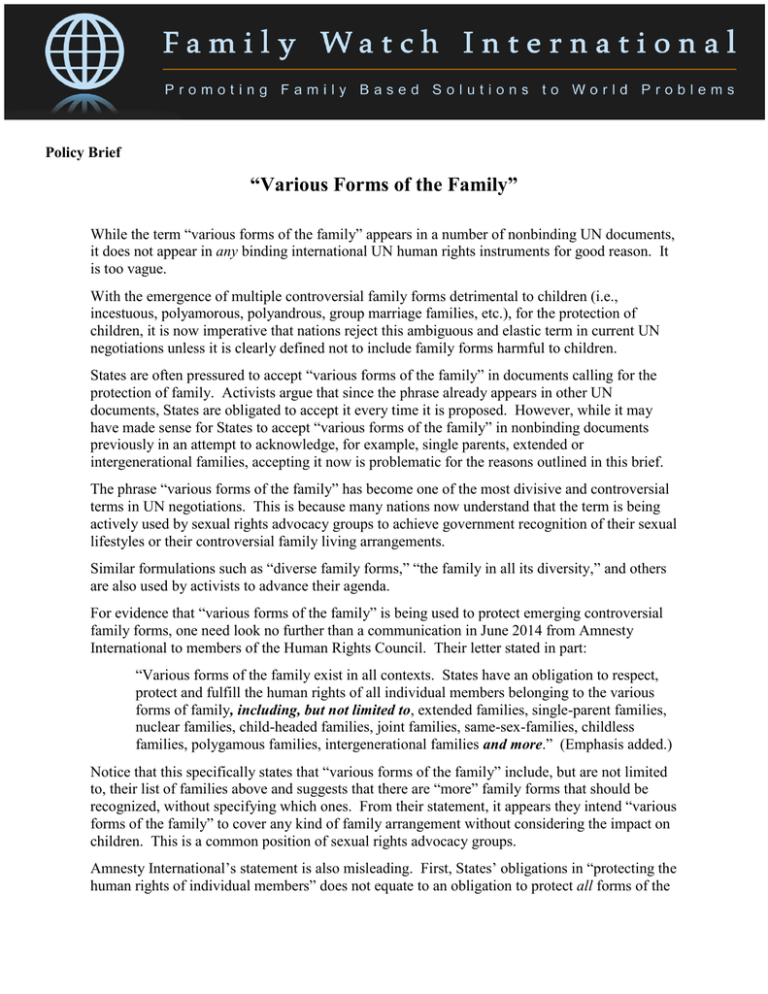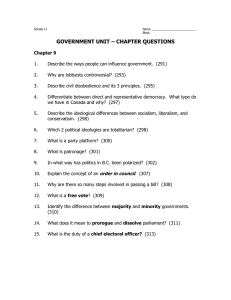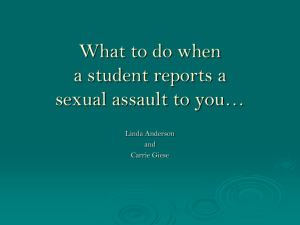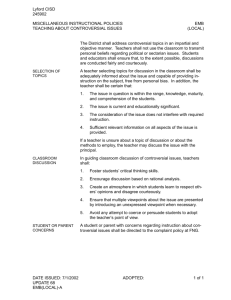
Policy Brief
“Various Forms of the Family”
While the term “various forms of the family” appears in a number of nonbinding UN documents,
it does not appear in any binding international UN human rights instruments for good reason. It
is too vague.
With the emergence of multiple controversial family forms detrimental to children (i.e.,
incestuous, polyamorous, polyandrous, group marriage families, etc.), for the protection of
children, it is now imperative that nations reject this ambiguous and elastic term in current UN
negotiations unless it is clearly defined not to include family forms harmful to children.
States are often pressured to accept “various forms of the family” in documents calling for the
protection of family. Activists argue that since the phrase already appears in other UN
documents, States are obligated to accept it every time it is proposed. However, while it may
have made sense for States to accept “various forms of the family” in nonbinding documents
previously in an attempt to acknowledge, for example, single parents, extended or
intergenerational families, accepting it now is problematic for the reasons outlined in this brief.
The phrase “various forms of the family” has become one of the most divisive and controversial
terms in UN negotiations. This is because many nations now understand that the term is being
actively used by sexual rights advocacy groups to achieve government recognition of their sexual
lifestyles or their controversial family living arrangements.
Similar formulations such as “diverse family forms,” “the family in all its diversity,” and others
are also used by activists to advance their agenda.
For evidence that “various forms of the family” is being used to protect emerging controversial
family forms, one need look no further than a communication in June 2014 from Amnesty
International to members of the Human Rights Council. Their letter stated in part:
“Various forms of the family exist in all contexts. States have an obligation to respect,
protect and fulfill the human rights of all individual members belonging to the various
forms of family, including, but not limited to, extended families, single-parent families,
nuclear families, child-headed families, joint families, same-sex-families, childless
families, polygamous families, intergenerational families and more.” (Emphasis added.)
Notice that this specifically states that “various forms of the family” include, but are not limited
to, their list of families above and suggests that there are “more” family forms that should be
recognized, without specifying which ones. From their statement, it appears they intend “various
forms of the family” to cover any kind of family arrangement without considering the impact on
children. This is a common position of sexual rights advocacy groups.
Amnesty International’s statement is also misleading. First, States’ obligations in “protecting the
human rights of individual members” does not equate to an obligation to protect all forms of the
family. All individuals, including those who are members of families have the right to have their
human rights protected, but not all individuals have the right to have their chosen family
arrangement or sexual lifestyles recognized or protected by governments, especially if such
arrangements are harmful to children.
Since “various forms of the family” does not appear in any binding UN treaties or conventions,
States are under no obligation to accept it in any UN documents moving forward. By rejecting it
when it is proposed, States send the message that not every family form imaginable will be
recognized or protected by their governments.
Nations have the sovereign right to determine such matters as per the UN Charter, which states
that the United Nations should not intervene in domestic matters. In other words, States or
organizations that use the United Nations system to try to force their controversial concepts of
the family on other States, are acting in violation of the UN Charter and are disrespecting the
sovereign right of nations to determine their own cultural norms.
A fear tactic commonly used by sexual rights activists is to pressure States to accept “various
forms of the family” in UN documents by claiming that if it is not included, somehow the rights
of individual family members will be nullified. This argument is illogical on its face. Nations
are already under obligation from various international human rights instruments to protect all
family members from abuse. Protecting the role the family in society does not, and cannot,
negate these obligations.
Provisions to protect the family unit which are found in five binding UN documents were never
intended, nor have they ever been used, to try to protect dysfunctional families or abusers. In
fact, many provisions that call for the protection of the family specify that the kind of family
environment that a child should have is one of “happiness, love and understanding” (CRC
Preamble). This is the kind of family nations need to protect.
Finally, ample documents state that “the rights, capabilities and responsibilities of family
members must be respected (Beijing 29, (1995); Habitat 31, (1996); Beijing +5 60, (2000);
Habitat +5 30 (2001)). No nation is advocating that the rights of individual family members
should be disrespected.
When pressure is being put to bear, especially on developing nations, to accept “various forms of
the family” for the sake of children, they would do well to reject such proposals or to narrowly
define what specific family forms are to be recognized and protected.
Family Watch International © 2014
P.O. Box 1432, Gilbert, AZ, 85299-1432 • www.familywatchinternational.org • fwi@familywatchinternational



